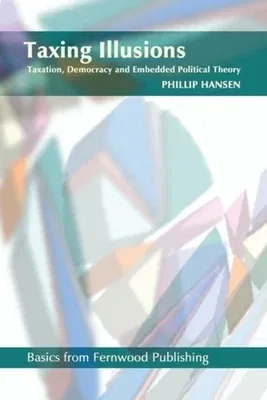Phillip Hansen
(Author)Taxing Illusions: Taxation, Democracy and Embedded Political TheoryPaperback, 1 September 2004

Temporarily out of stock
Free Delivery
Cash on Delivery
15 Days
Free Returns
Secure Checkout

Part of Series
Fernwood Basics
Print Length
128 pages
Language
English
Publisher
Fernwood Publishing
Date Published
1 Sep 2004
ISBN-10
1552661024
ISBN-13
9781552661024
Description
Product Details
Author:
Book Format:
Paperback
Country of Origin:
US
Date Published:
1 September 2004
Dimensions:
22.81 x
15.24 x
0.74 cm
ISBN-10:
1552661024
ISBN-13:
9781552661024
Language:
English
Pages:
128
Publisher:
Series:
Weight:
185.97 gm